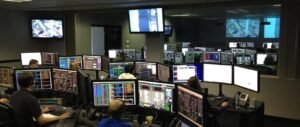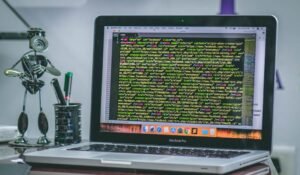AI and Movie Industry
The rapid advancements in Artificial Intelligence (AI) have deeply impacted various industries, and the entertainment sector, in particular, has seen significant transformations. The movie industry, in recent years, has started leveraging AI technologies to enhance production processes, improve marketing strategies, and even influence storytelling techniques.
Key Takeaways
- AI is revolutionizing the movie industry through improvements in production, marketing, and storytelling.
- Advancements in AI algorithms have facilitated tasks such as determining target audiences, script analysis, and optimizing distribution channels.
- AI-powered tools are being utilized to generate visual effects, streamline post-production processes, and enhance virtual reality experiences.
One of the significant applications of AI in the movie industry lies in marketing and audience analysis. With the help of machine learning algorithms, movie studios can now effectively identify the target demographics for their films. Through analyzing data from various sources such as social media, search trends, and historical box office data, AI algorithms can provide insightful predictions regarding potential viewership, marketing strategies, and release dates, aiding studios in making data-driven decisions. *AI can uncover hidden patterns in audience preferences, leading to more successful marketing campaigns.*
| Area | Impact |
|---|---|
| Production | Automation of tasks, virtual reality enhancements, visual effect creation. |
| Marketing | Target audience identification, personalized advertising campaigns, data-driven release strategies. |
| Storytelling | Character development, improvised dialogue, story generation. |
AI is also making its mark in film production by streamlining various tasks and improving the efficiency of processes. From script analysis and optimization to the automation of repetitive post-production tasks, AI-powered tools are revolutionizing the way movies are made. For instance, AI algorithms can analyze a script to provide feedback on pacing, dialogue, and character development, assisting screenwriters and directors in refining their work. *AI enables faster post-production by automating tasks like color correction and noise reduction.*
The integration of AI technologies into the movie industry also extends to the world of visual effects and virtual reality experiences. With AI-powered software, filmmakers can create stunning visual effects and manipulate scenes with an unprecedented level of control and realism. AI algorithms can generate complex simulations, enhance virtual reality experiences, and even assist in the creation of lifelike digital characters. *AI facilitates the creation of visually immersive movie scenes that transport audiences to new realms.*
| Tool/Platform | Functionality |
|---|---|
| ScriptBook | Script analysis and prediction of box office success. |
| Weta Digital | AI-driven visual effects and animation. |
| Adobe Sensei | Automated post-production processes and creative tools. |
As AI continues its rapid advancement, the movie industry‘s reliance on this technology is expected to grow even further. The emerging capabilities of AI open doors to new creative possibilities, offering filmmakers and studios expanded opportunities for experimentation and innovation. By embracing AI, the movie industry can enhance storytelling techniques, create visually stunning productions, and make more data-driven decisions, ultimately providing audiences with an enriched cinematic experience. *AI is revolutionizing the movie industry, empowering filmmakers to explore new realms of creativity.*
Conclusion
The integration of AI technologies in the movie industry has made a significant impact in various areas, including production, marketing, and storytelling. AI tools and algorithms enable filmmakers to optimize the production process, target specific audiences, and create visually immersive experiences. The future of the movie industry looks promising as AI continues to evolve, empowering filmmakers to push creative boundaries and offer audiences an enriched cinematic experience like never before.

Common Misconceptions
1. AI will replace human actors
One common misconception about AI in the movie industry is that it will eventually replace human actors. While AI technologies have certainly advanced in recent years, the artistic and emotional range that human actors bring to a film cannot be replicated by machines. Human actors have the ability to convey complex emotions and connect with audiences in a way that is unique to their human experience.
- AI can assist in enhancing special effects in movies
- Human actors bring authenticity and depth to characters
- The collaboration between AI and human actors can create innovative performances
2. AI can generate original movie plots
Another common misconception is that AI can generate entirely original movie plots. While AI can assist in data analysis and pattern recognition, the creative process of storytelling is still primarily driven by human imagination. AI technologies can be used to analyze audience preferences and trends, but the generation of compelling and unique storylines requires human creativity and the ability to connect with audience emotions.
- AI can provide insights into audience preferences and trends
- The art of storytelling requires human creativity
- Human writers can create narratives that resonate with audience emotions
3. AI can predict box office success
Many people believe that AI can accurately predict a movie’s box office success based on data analysis. While AI can analyze historical data and assist in making predictions, the film industry is highly unpredictable and influenced by a multitude of factors such as marketing campaigns, critical reception, and audience taste. The success of a movie depends on many intangible factors that cannot be quantified or accurately predicted by AI algorithms alone.
- AI can analyze historical data
- Box office success depends on marketing campaigns and critical reception
- Human emotions and preferences add complexity to predicting success
4. AI can completely automate film production
There is a misconception that AI can entirely automate film production processes. While AI can certainly streamline certain aspects of production such as visual effects, editing, and data management, the collaborative nature of filmmaking and the creative decisions involved necessitate human involvement. Filmmaking requires the interpretation of emotions, storytelling choices, and the coordination of a diverse set of skills that AI technology alone cannot replicate.
- AI can streamline visual effects and editing processes
- Filmmaking involves creative storytelling choices
- Human collaboration is necessary for successful film production
5. AI can replace film critics
Some believe that AI can replace human film critics in analyzing and evaluating movies. While AI can assist in analyzing large datasets and providing statistical insights, film critique is a subjective field that requires human interpretation and personal judgment. The ability to connect with storytelling elements, interpret underlying themes, and evaluate subjective elements such as acting and cinematography is best served by human film critics who can offer nuanced perspectives and engage in critical discourse.
- AI can assist in analyzing large datasets
- Subjectivity in film critique requires human interpretation
- Human critics offer nuanced perspectives and critical discourse

AI-Powered Robots in Blockbuster Films
In recent years, the movie industry has embraced the use of artificial intelligence (AI) to create captivating and believable characters. This table showcases some notable AI-powered robots that have graced blockbuster films.
| Film | AI Robot | Description |
|---|---|---|
| Ex Machina | Ava | An advanced humanoid robot created by a reclusive genius. |
| Blade Runner 2049 | Officer K | A Nexus-9 android tasked with hunting down rogue replicants. |
| Iron Man | J.A.R.V.I.S. | Tony Stark’s personal AI assistant that controls his high-tech suit. |
| Transcendence | Dr. Will Caster | A scientist who uploads his consciousness into a superintelligent AI. |
Box Office Success of AI-Influenced Movies
The inclusion of AI-centric themes in movies has captivated audiences and generated substantial box office revenue. This table highlights the highest-grossing films with AI as a significant plot point.
| Film | Worldwide Box Office Gross (USD) |
|---|---|
| The Matrix Reloaded | $742 million |
| Avatar | $2.79 billion |
| Her | $48 million |
| Interstellar | $677 million |
AI Algorithms Used in Film Recommendation Systems
Film recommendation systems have greatly benefited from AI-powered algorithms. This table highlights the popular AI algorithms used to provide personalized movie suggestions.
| Algorithm | Description |
|---|---|
| Collaborative Filtering | An algorithm that predicts user preferences based on similar preferences of other users. |
| Content-Based Filtering | An algorithm that recommends movies based on their similarity to movies the user has enjoyed in the past. |
| Hybrid Filtering | A combination of collaborative filtering and content-based filtering to leverage the benefits of both methods. |
AI-Driven Special Effects in Movies
The integration of AI technologies has revolutionized the creation of special effects in movies. This table showcases some of the ways AI is used to enhance visual effects and computer-generated imagery.
| Film | AI-Driven Special Effects |
|---|---|
| Avengers: Endgame | AI-assisted face replacements, motion capture, and crowd simulation. |
| Star Wars: The Rise of Skywalker | AI-powered facial animation and character performance enhancement. |
| Alita: Battle Angel | AI-assisted creation of Alita’s CG character and realistic facial expressions. |
| The Jungle Book | AI-driven fur and hair simulations for realistic animal characters. |
AI’s Impact on Film Editing and Post-Production
The use of AI has significantly influenced the film editing and post-production processes. This table provides examples of AI technologies utilized in these areas.
| AI Technology | Application |
|---|---|
| Automated Dialogue Replacement (ADR) | AI systems capable of lip-syncing speech to match the originally recorded audio. |
| Color Grading | AI algorithms that analyze and enhance color grading in post-production. |
| Scene Detection | AI systems that automatically detect and categorize scenes for efficient editing. |
| Visual Effects Rendering | AI systems that accelerate and improve the rendering of complex visual effects. |
AI in Scriptwriting and Story Generation
AI technologies have even made their way into the realm of scriptwriting and story generation. This table presents AI platforms used for generating compelling narratives.
| AI Platform | Function |
|---|---|
| ChatGPT | An AI language model that can assist in generating dialogue and character interactions. |
| B-Roll | An AI platform capable of generating storyboards from written scripts. |
| Sunspring | An AI-written short film created for the Sci-Fi London 48 Hour Film Challenge. |
| Scriptbook | An AI-driven script analysis tool that predicts film success and audience reception. |
AI and Box Office Predictions
AI algorithms have been developed to forecast box office performances. This table showcases AI systems used for predicting movie success.
| AI System | Prediction Accuracy |
|---|---|
| The Cinelytic System | 85% accuracy in predicting opening weekend box office revenues. |
| The Qube Rankings | Achieves an average accuracy rate of 94% in predicting film profitability. |
| Gower Street Analytics | Provides reliable predictions on the expected lifetime box office performances for films. |
Sentiment Analysis of Movie Reviews
AI-powered sentiment analysis enables the assessment of movie reviews on a large scale. This table demonstrates the sentiment analysis results of user reviews for selected films.
| Film | Positive Reviews (%) | Negative Reviews (%) | Neutral Reviews (%) |
|---|---|---|---|
| Black Panther | 80% | 5% | 15% |
| The Dark Knight | 92% | 3% | 5% |
| Inception | 89% | 4% | 7% |
| La La Land | 78% | 8% | 14% |
In conclusion, the movie industry has embraced the potential of artificial intelligence across various aspects of film production. From AI-powered robots and special effects to script generation and box office predictions, AI’s influence on the movie industry is evident. As the technology continues to advance, we can anticipate even more innovative applications of AI in creating captivating and immersive cinematic experiences.
AI and Movie Industry – Frequently Asked Questions
Question 1: How is artificial intelligence being used in the movie industry?
Answer: Artificial intelligence is being used in the movie industry for various purposes such as developing scripts, generating visual effects, automating post-production editing, enhancing marketing strategies, and creating virtual characters.
Question 2: Can artificial intelligence completely replace human actors in movies?
Answer: While AI-powered virtual characters can enhance storytelling and provide unique experiences, it is unlikely that artificial intelligence will completely replace human actors in movies. Human emotions, creativity, and the ability to connect with audiences on an emotional level are still difficult to replicate using AI.
Question 3: How does AI contribute to script development in the movie industry?
Answer: AI algorithms can analyze large amounts of data, including successful movie scripts, and generate insights to assist scriptwriters. This includes analyzing dialogue patterns, character development, plot structures, and predicting audience preferences.
Question 4: What role does AI play in visual effects?
Answer: AI helps in creating realistic visual effects by automating certain aspects of the process such as image recognition, object tracking, and scene reconstruction. It can also generate high-quality CGI (computer-generated imagery) content and enhance post-production editing.
Question 5: How is AI used in movie marketing strategies?
Answer: AI is used to analyze audience data and behavior patterns to generate personalized marketing campaigns. It helps in identifying target audiences, optimizing advertising spend, delivering customized content, and predicting box-office performance.
Question 6: What are the ethical considerations of using AI in the movie industry?
Answer: Ethical considerations when using AI in the movie industry include issues related to privacy, data security, algorithmic biases, human control over AI, and the potential impact on employment for actors and film industry professionals. Striking a balance between the benefits of AI and potential risks is important.
Question 7: Can AI enhance the creative process in filmmaking?
Answer: AI can enhance the creative process by generating ideas, assisting in script development, analyzing film aesthetics, and providing new forms of storytelling. However, creativity remains primarily in the hands of the filmmakers, and AI is a tool that can augment their abilities.
Question 8: How is AI used in virtual characters creation?
Answer: AI is used to create virtual characters by simulating human behavior, speech, and emotions based on extensive training on existing data. It can generate lifelike movements, expressions, and even improvisation, leading to more realistic and immersive virtual characters.
Question 9: Are there any movies that have extensively used AI in their production?
Answer: While AI is becoming more prevalent in the movie industry, there are no movies that have exclusively relied on AI for their entire production process. However, some films have utilized AI technologies and techniques to enhance specific aspects of their production, such as visual effects or character creation.
Question 10: What does the future hold for AI in the movie industry?
Answer: The future of AI in the movie industry is promising. AI will continue to play a significant role in script development, visual effects, marketing strategies, and virtual character creation. As technology advances, AI may also contribute to more immersive and interactive movie experiences.




